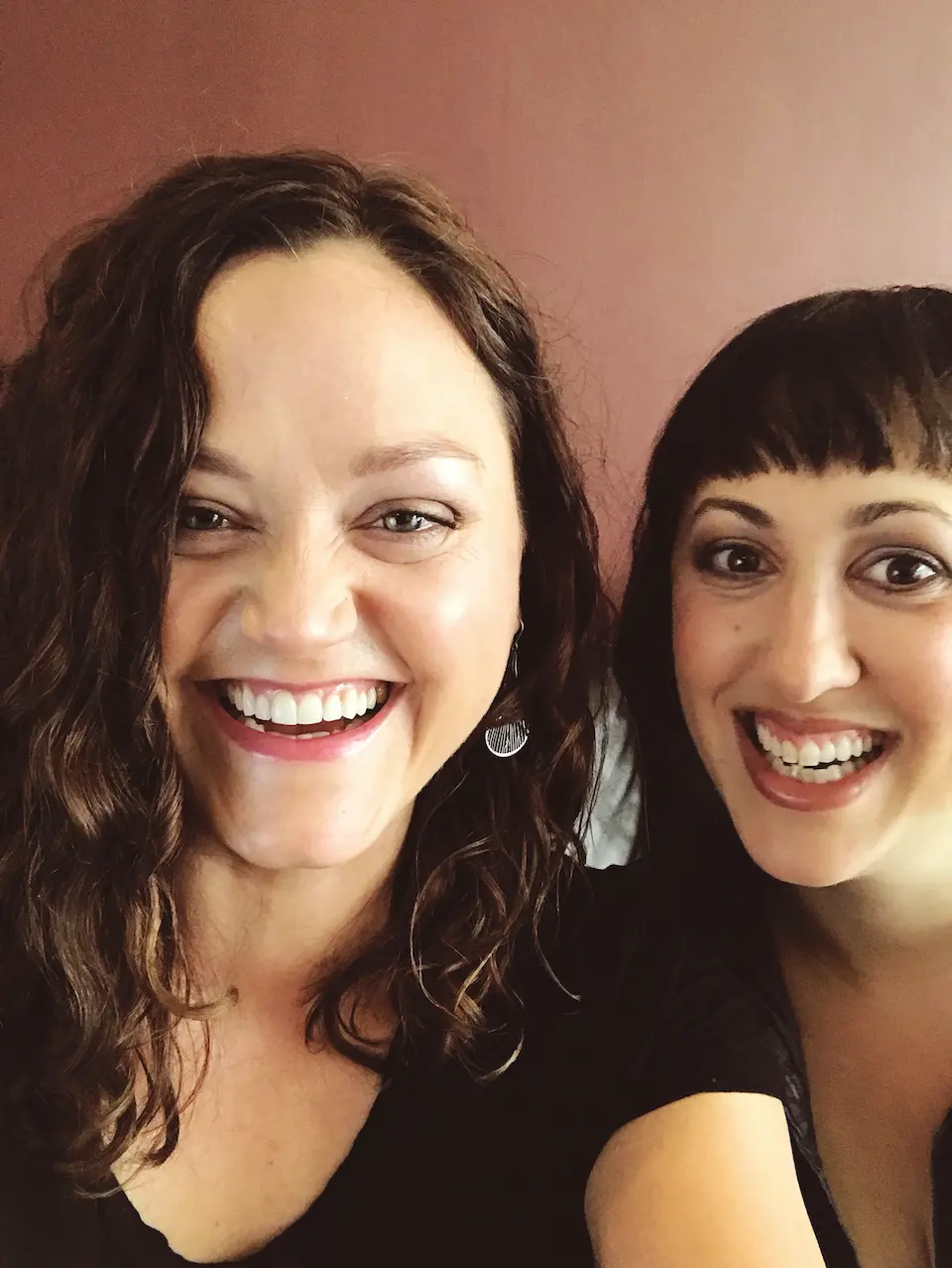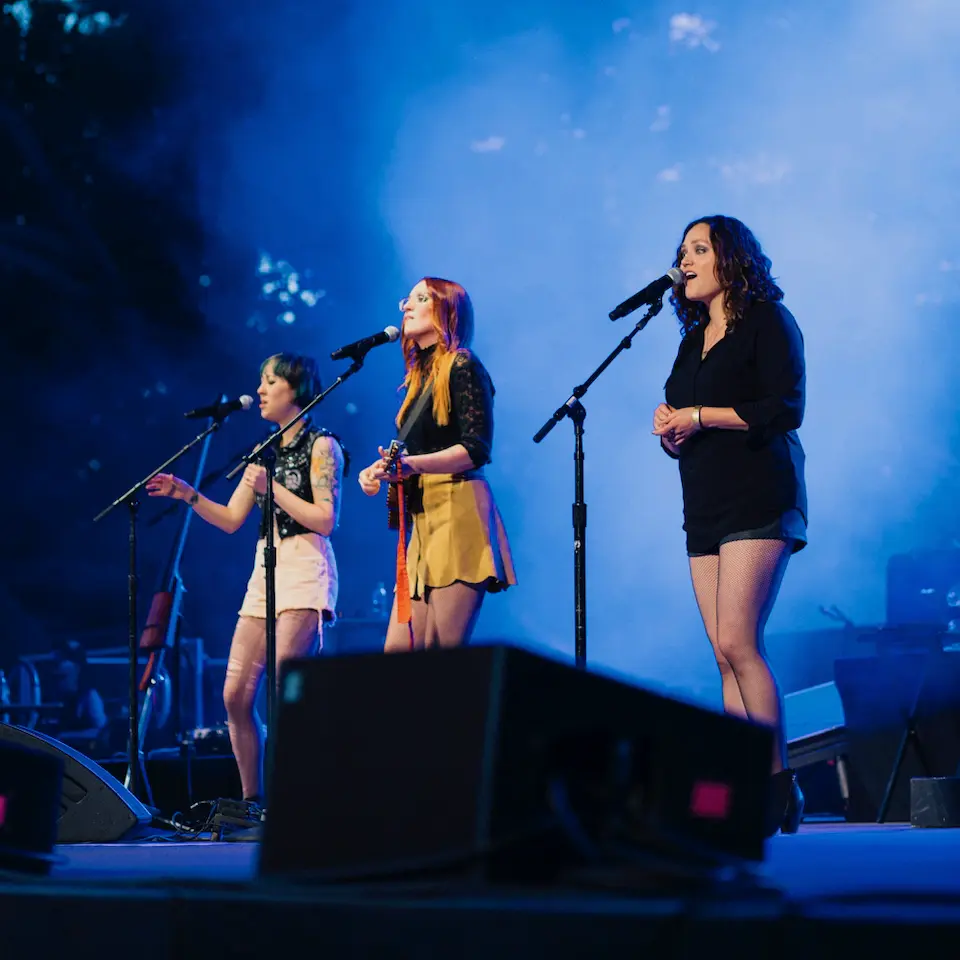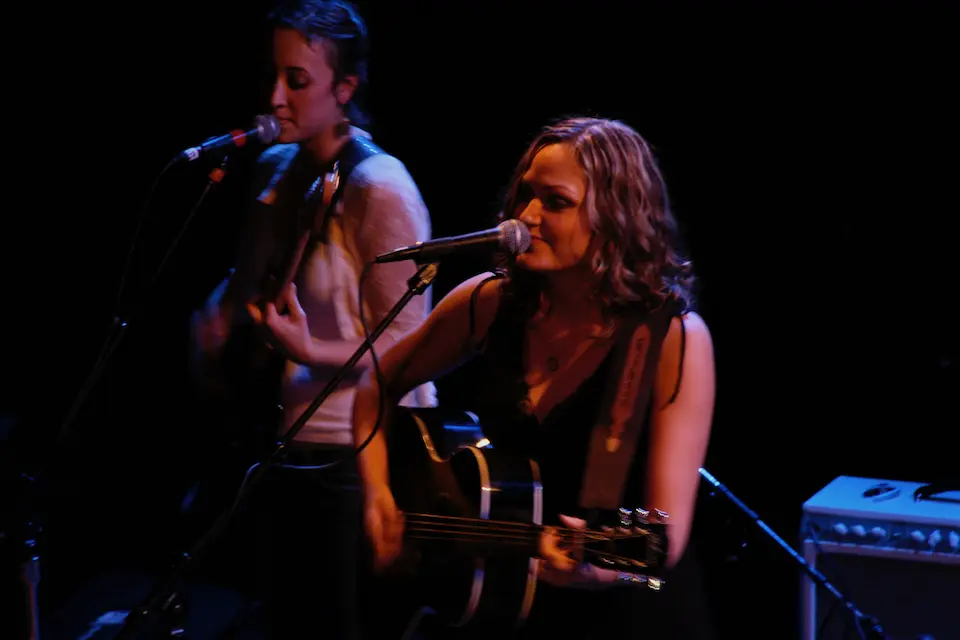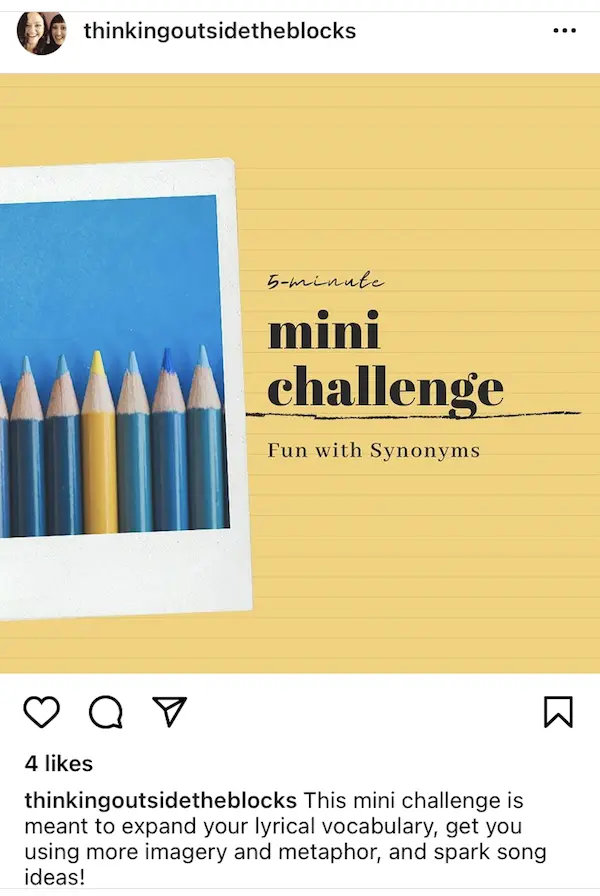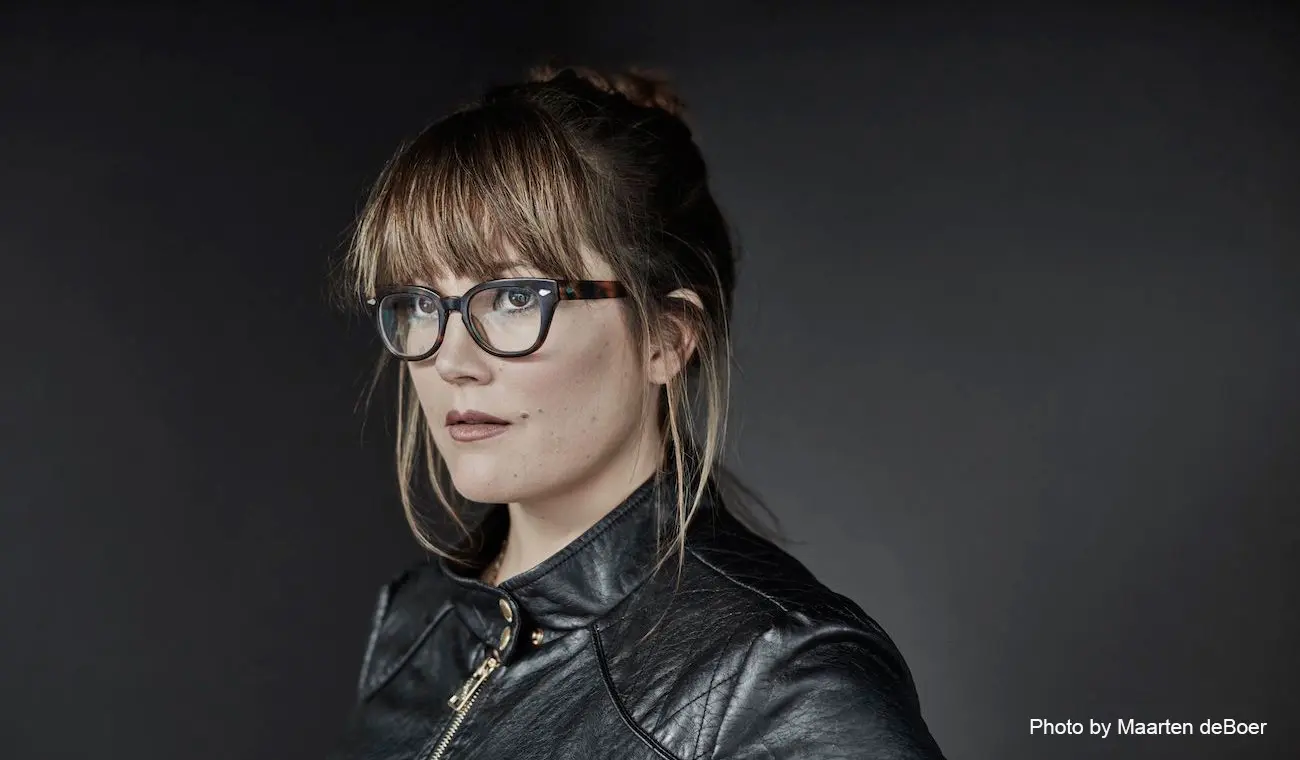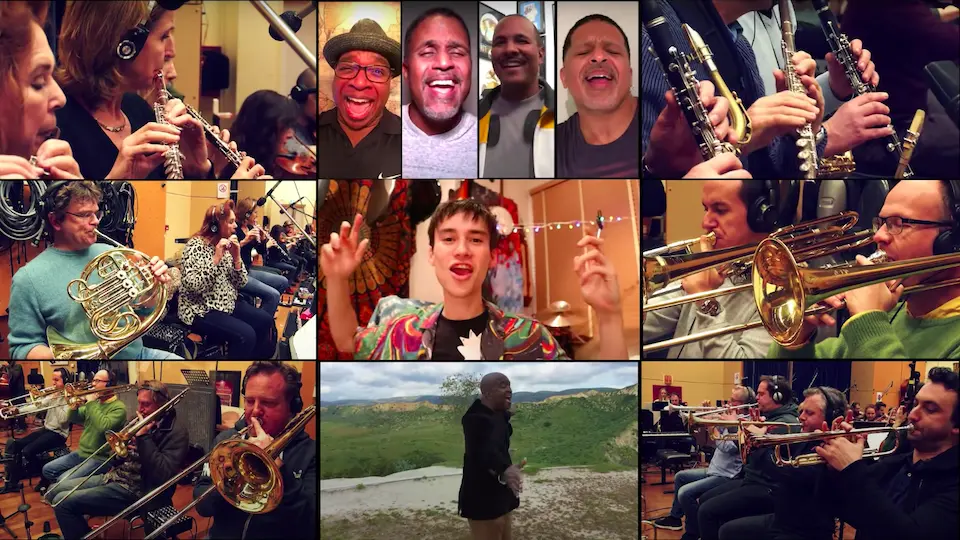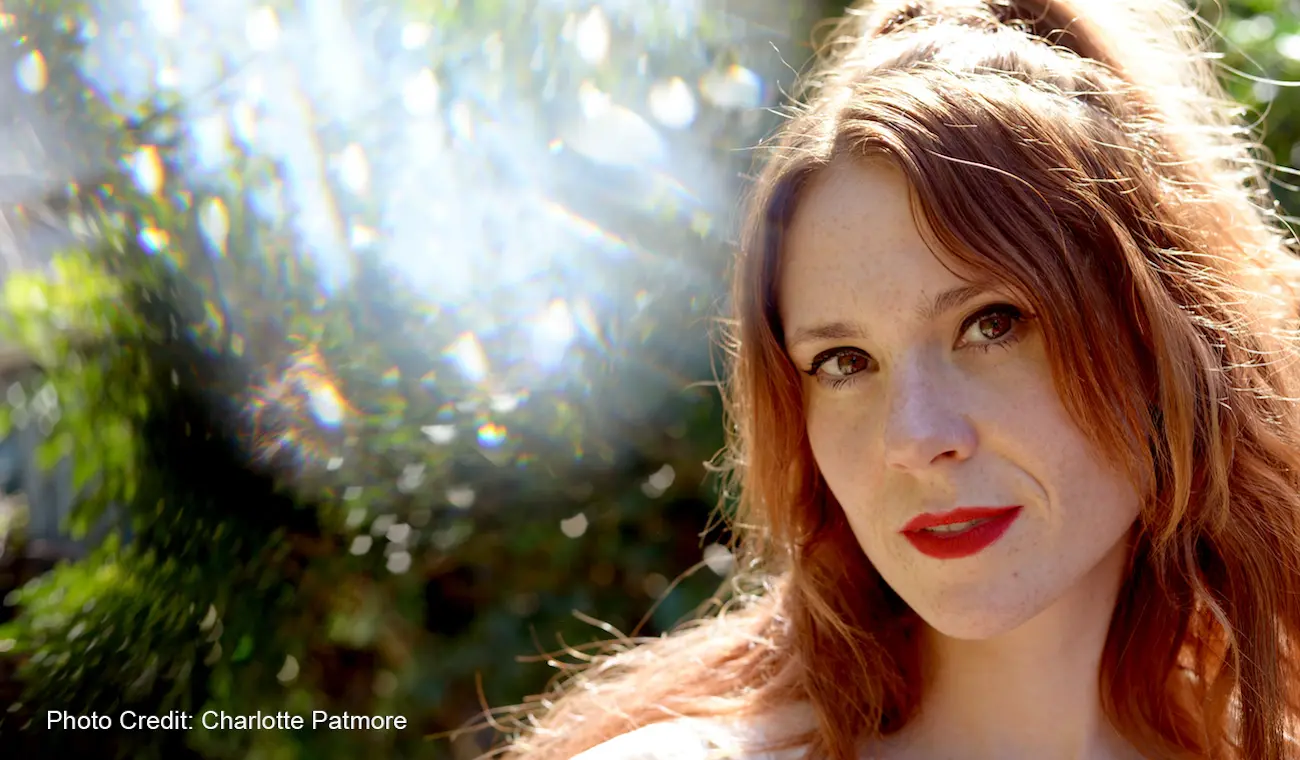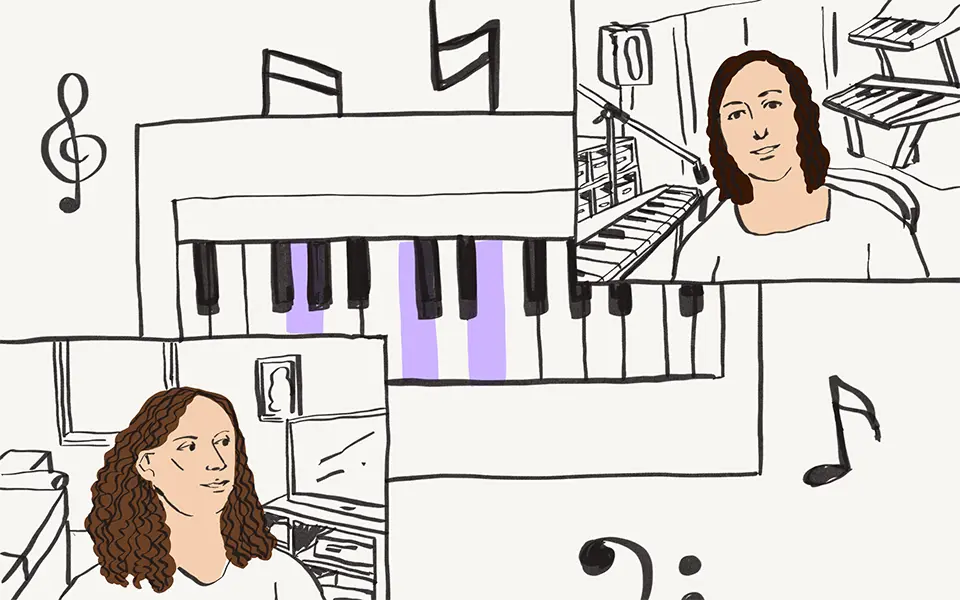
Virtual First, Dropbox for musicians, Passion economy
How two songwriters grew a thriving collaborative community (and business)
Published on April 22, 2021
As the pandemic paused live music, Allie Moss and Bess Rogers leaned into a personal passion: developing the skills of fellow musicians
As members of Ingrid Michaelson’s band, Allie Moss and Bess Rogers spent a lot of the last decade driving across the country, performing for cheering fans at legendary venues like Ryman Auditorium and The Fillmore. And as solo artists, they've built loyal followings of their own, placed songs on movie soundtracks, and co-written songs with the Grammy-winning duo A Great Big World. They seemed to have carved out a comfortable, sustainable life in the music business.
But when the pandemic put live music on hold over a year ago, they were forced to shift focus. So they turned their attention to a side hustle that’s becoming a thriving small business.
The idea for the business arose a few years ago following a painful personal crisis. After going through a divorce and surgery following a hip injury, Moss felt stuck. What began as writer’s block stretched into years with very few songs written. She began to wonder if her creative well had run dry.
“The longer I didn't write, the more that became a mountain of a lie that I couldn't write anymore,” she recalls. “Bess is the one who helped me through that. She invited me to collaborate with her. She helped me finish some songs. The momentum and joy of crossing that hurdle really helped me break through that particular block.”
As ideas began flowing again, Moss felt inspired to show others how to break through times of doubt and low motivation. So she reached out to Bess with an idea for a new business. And in 2016, they launched Thinking Outside The Blocks, an online education platform and community hub for songwriters.
The duo had come up with a way to connect with new students in a virtual setting. So they were already well prepared to endure the shift to remote work during the pandemic. But like the rest of us, they’ve had to adapt to a new way of working to keep their business going—especially when making a living as a touring musician became impossible as venues across the country closed. Here’s what the past year taught them about evolving the focus of their work as they pivoted from touring to teaching.
As ideas began flowing again, Moss felt inspired to show others how to break through times of doubt and low motivation. So she reached out to Bess with an idea for a new business.
DBX: How has your approach to the workshop changed over the past year?
Bess: Mostly, we were already doing everything virtually before the pandemic. We had a handful of in-person workshops, but it was mostly online already. The thing that really changed when the pandemic hit was that we decided to start doing these weekly free community classes every Saturday morning. They're on a variety of topics. So we'll do a class on guitar, a class on voice, a class on songwriting. We'll bring in friends and have an interview with them.
At the beginning of the pandemic, it was like, ‘What are we all gonna do?’ These free classes were a way to bring people together, connect, and do something positive in the world, give people who've lost their jobs something free to learn and grow their creativity, give something positive to look forward to during that time. It grew from that into one of the main things that we do now.
A year later, we're still doing it every week. Community classes are almost half of what we do. We have put a lot of work into writing these classes and getting guests to share. It's become this wonderful thing where we see a lot of the same faces every week on Zoom. It's been great for our business in that way because it's created this regularity that we can all interact with each other and really feel like a community. It's also brought in a lot of new people, which has been great for us. Then we continue to do our coaching and monthly challenges in our private Facebook group. So it kind of helps bring everybody into all the other stuff we're doing while still offering something of value to everybody during this time that's still hard. That's probably one of the biggest ways our business has changed.
Allie: I think we're very in tune with trying to meet our community where they're at and knowing what they want. When we started, we had one presentation workshop where we would talk about creativity and a four-week immersive workshop. Over time, we've evolved into more specialized one-off workshops designed to get people writing.
“When the pandemic hit, we decided to start doing these weekly free community classes every Saturday morning.”—Bess Rogers
Allie: We cast a wide net in that way because it'd be impossible to do one workshop that met the needs of every songwriter where they're at. Because songwriting is an amalgamation of so many skill sets. What instrument you play, what style you play, your understanding of theory, how much you've collaborated—if you've written five songs or 500 songs, everyone can grow and become a better songwriter. But they're all in different places, and what they need is different. So we don't try to meet all those needs, but we aim to encourage, and ask people how we can help them.
We're not offering ‘How to write a hit song’ or ‘How to get 1000 followers.’ We only teach from what we know, which is how to build a creative practice, and a lifestyle of songwriting that is fulfilling in and of itself, whether or not people hear your songs. That's our core motivation. We're lucky to be able to make our living, at least in part by writing songs and performing them. But at the core of who Bess and I are, we always want to be writing songs and getting better at it. Making a living is a bonus.
DBX: How has working together through the screens changed the way you communicate?
Allie: I think we still have the challenge of getting to know the other person. For some people, that virtual distance might be a benefit if they're the kind of person who feels more comfortable in their own space. For others, it might be more awkward to get to know someone through a screen. When you're writing with someone in a room, you have to be vulnerable—you know, talk to them. I think that challenge is still there. Most people are used to virtual meetings now, so it presents some pros and some cons, in my opinion.
Bess: As much as I do like writing analog style with a pen and paper, I really enjoy co-writing with a collaborative co-editing doc and seeing what the other person is writing. I like the visual of seeing thoughts and being able to place them together and put the puzzle pieces together visually. That's what you have to do in a virtual co-write. Now that has become commonplace and I enjoy that part of it. The hard part is just the lag—not being able to play together.
“The fact that we share our unfinished work hopefully gives everybody the freedom to do the same and know they're not going to be judged.”—Bess Rogers
DBX: How do you establish a feeling of trust and comfort among strangers who each have different skill levels?
Bess: One of the things we say all the time is that the goal of our writing exercises is not to write a good song, it's just to write a song. Often, the pressure of having to write something good can just stop the creativity in its tracks. It can feel really vulnerable and scary. Really, the more you create, the more easily it'll come and the more you'll have opportunities to tap into something special. But you can't be worried about writing a good song. We really prioritize and emphasize that, which creates an atmosphere where people know they don’t have to show up with anything good.
We do that, too. When we do some of our writing challenges, we write for it. We’ll say, ‘Well, I wrote something. Here it is. It’s not great.’ Just the fact that we share our unformed, unfinished, vulnerable work, that's maybe not the stuff that we would put out to the world, hopefully gives everybody the freedom to do the same thing and know that they're not going to be judged.
We also always try to offer positive feedback and encouragement. Everybody in our group does, too. Often in a personal, face-to-face virtual workshop, people will comment and have a lot of encouraging things to say. I think it's naturally become this really supportive environment.
DBX: What are the things you've noticed are resonating the most with the people in the workshops?
Bess: We took the immersive four-week workshop that we had, and decided to make it once a month for free on our Facebook page. We give a detailed lyrical prompt, usually surrounding a theme. This last month’s prompt was failure, looking at it from every angle—fear of it, coming to terms with it, in relationships and life. Then we give them a musical restriction—like a chord progression we want them to play in the song. They’re thoughtful prompts about pretty specific topics, but things that are open and deep enough that anybody could get into something that means something to them.
“The goal of our writing exercises is not to write a good song, it's just to write a song. Often, the pressure of having to write something good can just stop the creativity in its tracks.”—Bess Rogers
Bess: We host this challenge monthly and ask those that want to participate to commit by commenting ‘I’m in.’ They have one week to write the song. At the end of the week, everybody posts their song and everybody listens and we all comment on it. Every month, we’ve had 20 original songs written for each one of these posts. It’s been exciting to see the response to that.
It seems to help people feel motivated and inspired, having the accountability of saying, ‘Yeah, I'm going to do it, I'm going to commit to it.’ Then they know we're going to tag them in it and say, ‘Where's your song? Even if it's not finished, you’ve got to post it.’ Sometimes we all need that, especially when we have day jobs and our obligations, creativity can kind of fall by the wayside. So the community has been really nice. It's been wonderful to see that grow. We're trying to now work on how to further that momentum.
Allie: I'm going to plug Bess. She's been leading an eight-part series in our free community classes called Music Theory for Songwriters. We’ve gotten a lot of great feedback. People are saying, ‘You're explaining this in a way I can digest and actually understand and apply it to songs.’ I help Bess make the presentations and edit her classwork and even though I’ve studied theory, this has reignited my love for it. I get excited like, ‘Chords are so cool!’ I love math, but she’s not teaching it in a math-y way. We're bringing these sorts of things in to fill those gaps if artists and songwriters need that.
DBX: Your Community Classes are free and include individual chapters of the courses you sell as a packaged content series via shared Dropbox folders. What other ways have you been using technology for your business?
Bess: We use Dropbox to host pretty much all of our files for Thinking Outside the Blocks. Everything we do is on Dropbox. So we’re also on Zoom all day. For my music theory workshops, I've been using this app called Chordie. It shows the keyboard and it tells you the notes. So I can have my MIDI keyboard and GarageBand open, just share my little keyboard, and even have Pro Tools or Logic open and share my screen.
Allie: I've actually dug into Logic and learned how to record myself on a basic, but workable level from home so that I can collaborate, and co-write a song with Bess and send her quality stems of my voice. We've also been writing with a girl we've never met in person. Her name is Sydney Mae. She's a talented, young Canadian songwriter. Bess produced one we’ve written called ‘Feet First.’ She recorded her vocals in her home studio and I vocal produced via Zoom. Then when Bess was making changes and working on the production, we “sat in” on the session by using an app called Listento so we could actually hear Bess’s Pro Tools stream in real time.
“We only teach from what we know, which is how to build a creative practice, and a lifestyle of songwriting that is fulfilling in and of itself."—Allie Moss
Bess: I can share my screen and be recording a piano track and you can see and hear it being recorded in real time—not just through my speakers, but directly through the computer audio. I've been using that a lot. I've experimented with a bunch of different education apps to be able to show what's happening on a piano, especially when teaching music theory. I also use a website called Noteflight to write scores. I teach some guitar lessons, and also use it to make guitar tabs. We're teaching a harmony class through The Songwriting School of Los Angeles, and we’re using it to create scores for the harmony parts. During lessons, I will screen share and use Noteflight so students can see me writing out parts.
DBX: What's one thing you've learned over the past year about adapting to remote collaboration?
Allie: Necessity is the mother of invention. For me, I think the necessity to be able to write pushed me. The necessity of wanting to be able to collaborate remotely pushed me enough to actually get down and dirty and learn how to record myself, which is something I've been wanting to do for years. When you're around great engineers and producers all the time, you don't need to, because they're going to do it for you. So I think that it gave me a skill that I wouldn't have otherwise had.
